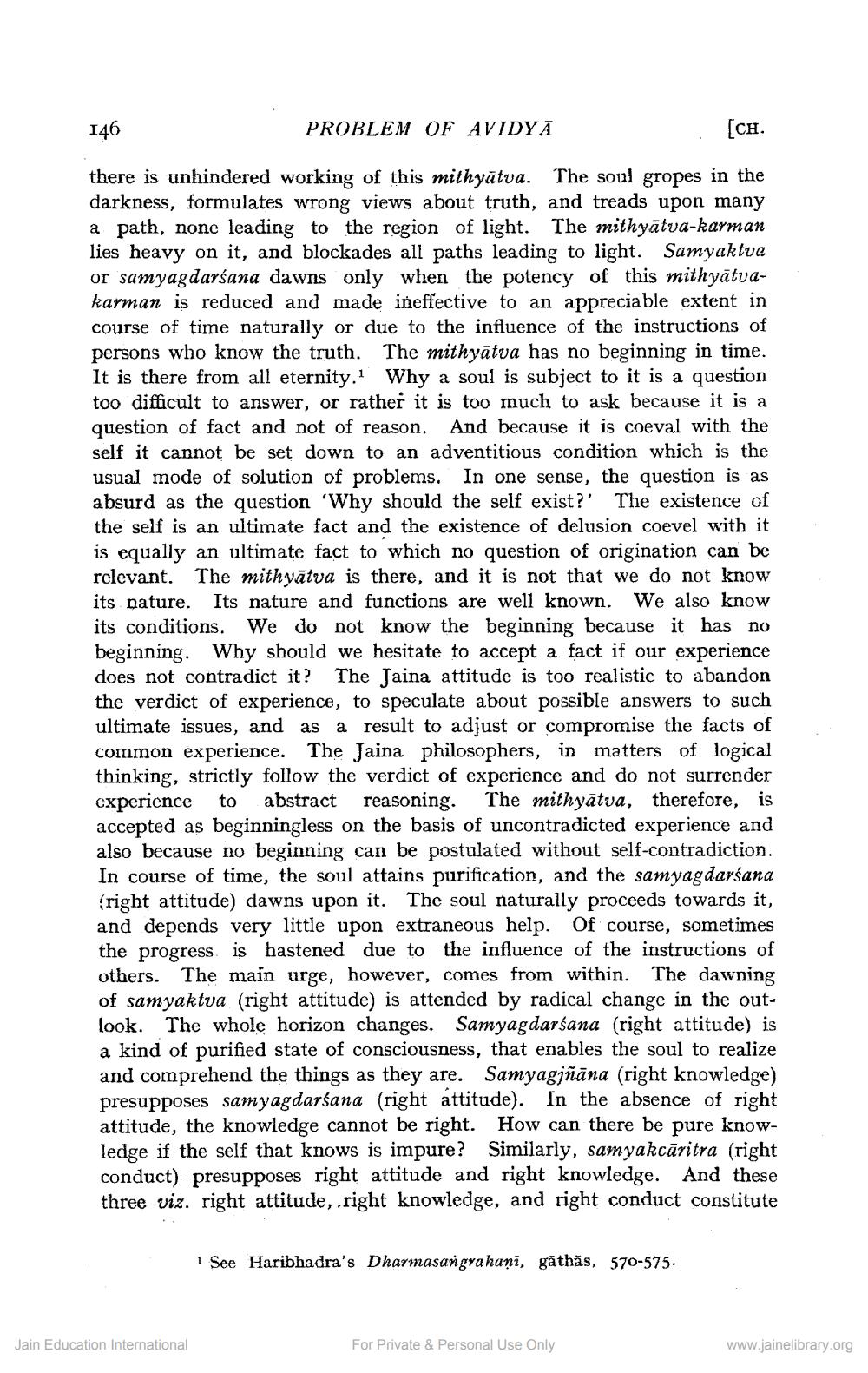________________
146
[CH.
there is unhindered working of this mithyatva. The soul gropes in the darkness, formulates wrong views about truth, and treads upon many a path, none leading to the region of light. The mithyatva-karman lies heavy on it, and blockades all paths leading to light. Samyaktva or samyagdarśana dawns only when the potency of this mithyātvakarman is reduced and made ineffective to an appreciable extent in course of time naturally or due to the influence of the instructions of persons who know the truth. The mithyatva has no beginning in time. It is there from all eternity. Why a soul is subject to it is a question too difficult to answer, or rather it is too much to ask because it is a question of fact and not of reason. And because it is coeval with the self it cannot be set down to an adventitious condition which is the usual mode of solution of problems. In one sense, the question is as absurd as the question 'Why should the self exist?' The existence of the self is an ultimate fact and the existence of delusion coevel with it is equally an ultimate fact to which no question of origination can be relevant. The mithyatva is there, and it is not that we do not know its nature. Its nature and functions are well known. We also know its conditions. We do not know the beginning because it has no beginning. Why should we hesitate to accept a fact if our experience does not contradict it? The Jaina attitude is too realistic to abandon the verdict of experience, to speculate about possible answers to such ultimate issues, and as a result to adjust or compromise the facts of common experience. The Jaina philosophers, in matters of logical thinking, strictly follow the verdict of experience and do not surrender experience to abstract reasoning. The mithyatva, therefore, is accepted as beginningless on the basis of uncontradicted experience and also because no beginning can be postulated without self-contradiction. In course of time, the soul attains purification, and the samyagdarśana (right attitude) dawns upon it. The soul naturally proceeds towards it, and depends very little upon extraneous help. Of course, sometimes the progress is hastened due to the influence of the instructions of others. The main urge, however, comes from within. The dawning of samyaktva (right attitude) is attended by radical change in the outlook. The whole horizon changes. Samyagdarśana (right attitude) is a kind of purified state of consciousness, that enables the soul to realize and comprehend the things as they are. Samyagjñāna (right knowledge) presupposes samyagdarśana (right attitude). In the absence of right attitude, the knowledge cannot be right. How can there be pure knowledge if the self that knows is impure? Similarly, samyakcaritra (right conduct) presupposes right attitude and right knowledge. And these three viz. right attitude, .right knowledge, and right conduct constitute
Jain Education International
PROBLEM OF AVIDYA
1 See Haribhadra's Dharmasangrahaṇī, gāthās, 570-575.
For Private & Personal Use Only
www.jainelibrary.org




